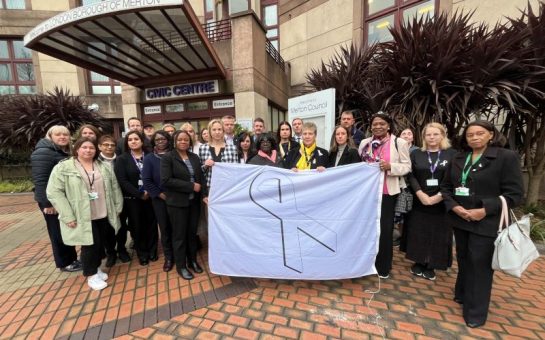Samantha Tomaszczyk looks at Merton councils’ proposals to merge with Sutton and Kingston.

Job losses, threats to frontline services, less influence – if critics of the planned merger between Merton, Sutton and Kingston councils are to be believed, this is what their residents face.
The proposal involves the three councils merging all services, from refuse collection to adult social services, in a bid to cut costs.
The projected savings are impressive. Merton Council, which must save £25million over the next four years, may well achieve this if the merger goes ahead.
Estimates show they could save £30million from the partnership and Sutton could expect similar gains.
But at what cost? Head of human resources at Sutton and Merton, Dean Shoesmith, says as most of any council’s annual spend is employee related, this is where officials will look to make the most savings.
Every position from chief executive to monitoring officer will be reviewed to eliminate duplication and streamline the body of officers who act as a local civil service.
Estimates made by Kensington and Chelsea Council, who are expected to merge with Fulham and Westminster in the new year, show one in three officers will lose their job.
Similar figures are expected if Merton decided to merge, meaning that its 4,000 unelected staff could be reduced to 2,667.
The public’s response is mixed. Student Jason Cook, 22, said: “Wages are the single biggest bill for the council tax payer, and unless this is reduced, then there is no point in the merge.”
Retired office worker John Hardy, 74, said: “If three people are doing a job that could be done by two, I don’t see any reason why the reductions shouldn’t be made.”
But Unite, the union which represents many public sector workers, say sacrificing jobs to save money is a short-term solution which will not help the country out of recession.
“Huge saving would be made through cutting staff costs but the unemployed do not contribute to the economy,” said Unite’s Regional Secretary for the London and Eastern region, Steve Hart.
“The coalition seem unconcerned with the human cost of savings measures such as these. They are fixated on reducing the national debt through any means necessary.
“The Tories are ideologically obsessed with cuts.”
Job cuts are just one of the effects of council mergers, however. Some believe having one chief executive officer making decisions for three councils will mean local government is less accountable.
Wimbledon resident Sarah Reid said: “Local government requires local knowledge, involvement and most importantly accountability. The larger the council becomes, the more all of these will suffer.”
However, as the number of councillors will remain unaltered, fears of reduced accountability are unjustified. The political identity of the boroughs will also stay the same.
On the other hand, if mistakes are made in a super council it is harder to apportion blame as each council could claim the others are responsible.
Rather than loss of accountability, a more likely result of the merger is cuts to frontline services, which the council have not ruled out.
But Cabinet Member for Finance, Mark Allison, says by improving efficiency within the council and cutting out waste and bureaucracy, the merger will allow for frontline services to be protected.
Communities Secretary Eric Pickles said: “By sharing back-office services, they’ll be able to protect the front line and even improve the choice and services that’s on offer to local residents.”
Leader of the council, Stephen Alambritis, said some council departments have already merged successfully, and the same can be expected of further pooling of resources.
Merton’s human resources department merged with Sutton’s in October 2009, leading to £150,000 savings for each.
Merton and Sutton Police have been discussing joining forces since October this year. Residents voiced support for this providing the number of police officer redundancies is kept to a minimum and response times are not affected.
The political impact of the prospective merger must also be considered. Merton, a Labour-led council, will be joining with Sutton and Kingston , both under Liberal Democrat control.
This coalition-esque arrangement could lead to difficulty in making decisions.
Equally, however, it could result in increased cooperation and where decisions are made collectively they will carry a larger mandate, therefore increasing accountability.
So it’s questionable whether the residents of the three boroughs considering a merger will have less influence over decisions made for them.
There may be over a thousand job losses, but this would improve efficiency which means funding to frontline services will be protected.
Therefore two of the three main criticisms made of the proposal to merge may prove unfounded.
Merton has struggled to find the 5-7% budget savings needed every year for the next four years, on top of 11% efficiencies implemented this year.
Forming a super council could be the solution, but for a merger to make its promised savings jobs must be cut ruthlessly, and at a time where finding a new job is particularly difficult.
So the council must make the tough choice between holding on to staff and making efficiency savings in other areas – possibly cutting funding for frontline services such as policing.
When push comes to shove, it will most likely choose the less politically-unpopular option, council officer redundancies, over raising taxes or cutting service funding.




